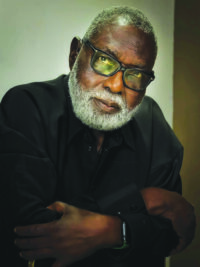Published in 2021 by Sevhage, the novel: “Fruit of Pain,” is authored by Mabel Adinya Ade, a social development consultant who holds degrees in Gender Studies and Sociology. She has many years of experience in the civil society space where she has worked on adolescent sexual health, safe motherhood, and gender dimensions of conflict while actively doing community development work in this field.
The novel, Fruit of Pain is a story that bestrides motherhood and patriarchal hegemony. In the novel, despicable stories of the violence on the woman’s body are brought to light. From women who are forced into sex by their husbands during contraction to women periled by lack and hunger, to women clamped by pain because of the complications of childbirth. It reflects the true-life stories of several women who at times in their lives have issues delivering a child due to poor or no healthcare facilities around to help in easing the pains of giving birth.
In the book, Mercy Albert narrates to Grace, who she found depressed by the roadside with a little girl and a baby, on her way to meeting her old friend, Dr Joseph. Mercy is married to Jude, and as a couple, they struggle through the years of their marriage, to conceive, and have children especially early in marriage.
Jude’s family continually torments her for not having a child, especially, Uncle Tony, who taunts her and wouldn’t eat her food whenever he visits in the name of not wanting to stress her since she has no child who could help her out in the house, and every time he makes this statement to Mercy, Jude only looks on, and would not even defend her, but leave her to brood and pray alone.
Also Read:
The book: “Fruit of Pain,” also shows us that the extension of patriarchy is assisted by the womenfolk themselves. In the novel, Mercy eventually conceives, and gives birth to a female child. Friends and well-wishers troop in to rejoice and celebrate with Mercy and Jude for having a child after four years, including Uncle Tony and his wife, Agatha.
Aunty Agatha, as Mercy refers to her, knowing what women pass through in hard times, still mocks Mercy like her husband, saying she hopes it won’t take another four years to give Sarah, Mercy and Jude’s baby a sibling to help her around in the house as Deborah, Mercy’s sister is doing. Agatha’s husband, Uncle Tony then adds that he hopes the next child would be male who can carry the family’s name as a female child wouldn’t. In all this, Jude again walks away without standing up to defend his wife. At some point, with increased pressure from his family, Jude gets involved in an extra marital affair, through which he has a male child. Mercy feels hurt and betrayed but elects not to let this get to her so much.
After giving birth to Sarah after four years of marriage, Mercy is put under pressure to have another child, especially a male child, and the attendant anxiety results in several miscarriages, and because of this Uncle Tony her tormentor, refers to her womb as a graveyard that cannot hold foetus but kill them.
Mercy again conceives, but this time decides to change the environment in order to clear her head. She travels to Brussels where her friend, Joy lives. Eventually, Mercy and Grace, the depressed woman by the roadside, both find peace and joy. Mercy has her children and her love for these children gives her renewed reason to love Jude, her husband again.
Grace is also seen with beautiful laughter as Mercy has now counselled her to be emotionally strong and healthy for her baby. After dropping Grace off at her destination, Mercy continues on her journey, with vivid recollections of all that has transpired in her life: the love from her children, the support systems God has kindly supplied through loving friends to siblings, her priest who later died in the course of the story, the doctors, and some other people whom she is not able to remember, as she now looks with hope, to the future.
This book, Fruit of Pain, is a powerfully crafted work, with beautiful narration and punch.
This 95-page novel is a delightful work that delicately discusses issues of motherhood, maternal health, despair, hope, and faith.
It particularly discusses the dark sting of patriarchy, especially in the Nigerian context. It is a great work of art.
. Olatunbosun is a broadcast journalist, fact-checker and book reviewer at Splash FM 105.5, Ibadan. He can be reached via 08023517565 (SMS & WhatsApp only) or email molatunbosun@splashfm1055.com.
Post Views: 20


















Leave a comment